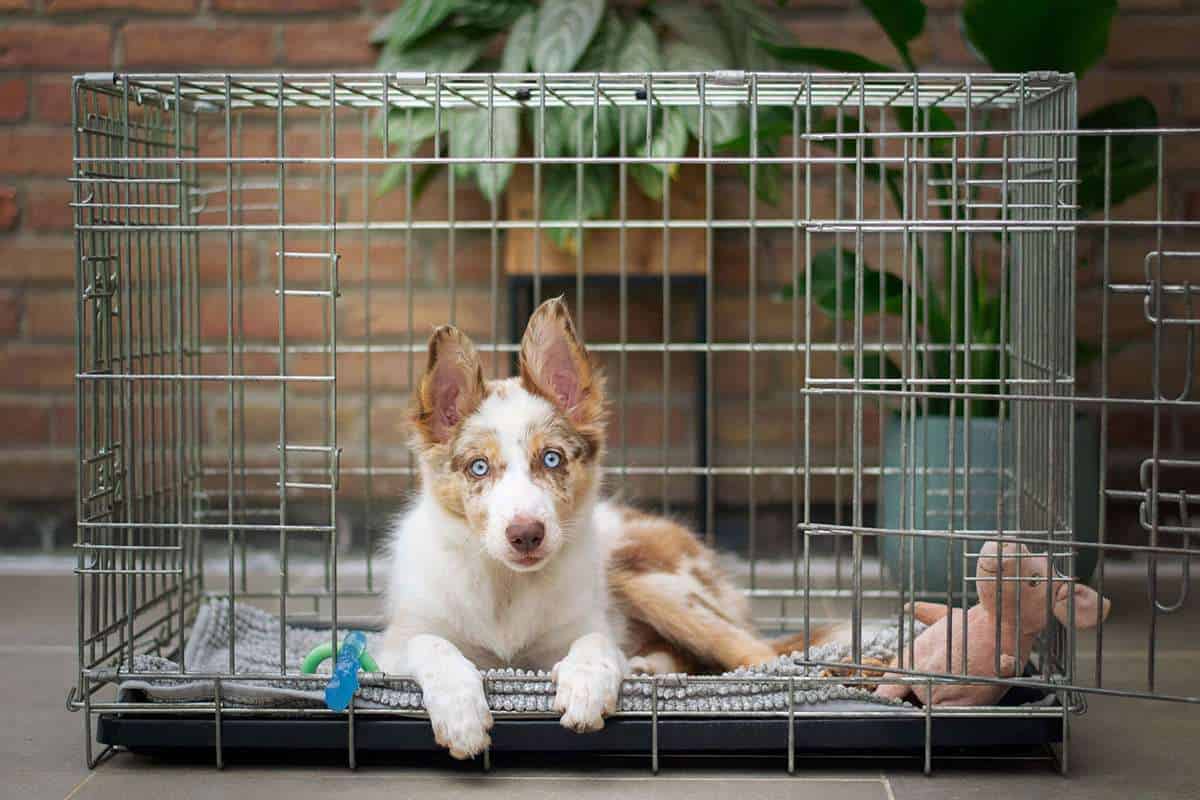One often-overlooked symptom of anxiety in dogs is diarrhea. In this blog post, we will explore the connection between dog anxiety and diarrhea, discuss why stress can lead to digestive issues, and provide some helpful tips for managing your dog’s anxiety-induced diarrhea.
The Connection Between Dog Anxiety and Diarrhea
The digestive system of dogs, like humans, is closely linked to their emotional state. When a dog experiences stress or anxiety, their body releases stress hormones, such as cortisol and adrenaline. These hormones, while essential for the “fight or flight” response, can disrupt various bodily functions, including the digestive process. The result? A range of gastrointestinal issues, with diarrhea being a prominent symptom.
Common causes of anxiety in dogs that may lead to diarrhea include:
- Separation anxiety: Chronic behavioral conditions, notably separation anxiety, can lead to extended periods of stress, affecting the dog’s overall health.
- Fear-based anxiety: Loud noises, such as thunderstorms or fireworks, can cause fear-based anxiety in dogs, leading to diarrhea.
- Social anxiety: Some dogs may experience anxiety in social situations, such as meeting new people or other animals, which can result in digestive upset.
- Changes in routine or environment: Dogs thrive on routine, and sudden changes to their daily schedule or living environment can cause stress and anxiety, potentially leading to diarrhea. Situations such as moving homes, renovations, or the introduction of new household members can induce stress in dogs.
- Health-Related Issues: Some illnesses or medications can induce symptoms of anxiety, further complicating the diagnosis and treatment process.
Managing Your Dog’s Anxiety-Induced Diarrhea
Identify and address the cause of anxiety: The first step in managing your dog’s anxiety-induced diarrhea is to identify the source of their stress and work on addressing it. This may involve providing a safe and secure environment, employing desensitization techniques, or seeking professional help from a veterinarian or dog behaviorist.
Provide a balanced diet: Ensuring that your dog is receiving a well-balanced and easily digestible diet can help maintain a healthy digestive system and minimize the occurrence of stress-related diarrhea. Discuss your dog’s nutritional needs with your veterinarian and consider incorporating a high-quality, easily digestible food into their diet.
Offer a consistent routine: As mentioned earlier, dogs thrive on routine. Establishing a consistent daily schedule, including regular feeding times, walks, and playtime, can help reduce your dog’s overall anxiety levels and minimize the likelihood of stress-related diarrhea.
Dietary Considerations: Implementing a bland diet or introducing probiotics can alleviate symptoms of an upset stomach.
Encourage relaxation: Teach your dog to relax by providing a calm and quiet environment, and engaging in calming activities such as gentle petting, massage, or quiet time together. You can also consider using calming aids, such as pheromone diffusers, calming collars, or calming supplements, to help ease your dog’s anxiety.
Exercise and mental stimulation: Regular physical activity and mental stimulation can help reduce anxiety in dogs by releasing pent-up energy and promoting the production of endorphins, which can have a calming effect. Make sure your dog gets plenty of exercise and mental stimulation through walks, playtime, and interactive toys or puzzles.
Medical and Natural Treatments: Depending on the severity, veterinarians might prescribe anti-anxiety medications. Natural remedies, such as chamomile or CBD oil, can also be considered.
Consult your veterinarian: If your dog’s anxiety-induced diarrhea is persistent or severe, it’s essential to consult your veterinarian for a thorough evaluation. Your veterinarian can rule out any underlying medical issues and may recommend medications or specific treatments to help manage your dog’s anxiety and diarrhea.
Conclusion
Anxiety can indeed cause diarrhea in dogs, as stress hormones can directly impact the gastrointestinal system. To help manage your dog’s anxiety-induced diarrhea, it’s crucial to identify and address the cause of their anxiety, provide a balanced diet and consistent routine, encourage relaxation, and ensure they receive adequate exercise and mental stimulation. It’s also important to consult your veterinarian if your dog’s diarrhea is persistent or severe, as they can rule out underlying medical issues and provide appropriate treatment options.
By taking a proactive approach to managing your dog’s anxiety and addressing the factors contributing to their diarrhea, you can help improve their overall well-being and ensure a happier, healthier life for your furry friend. Remember that every dog is unique, and it may take time and patience to determine the most effective strategies for managing your dog’s anxiety-induced diarrhea. Stay committed to your dog’s well-being, and don’t hesitate to seek professional help if needed.
For further information on diarrhea and dog anxiety, check out these sites:




Leave a Reply